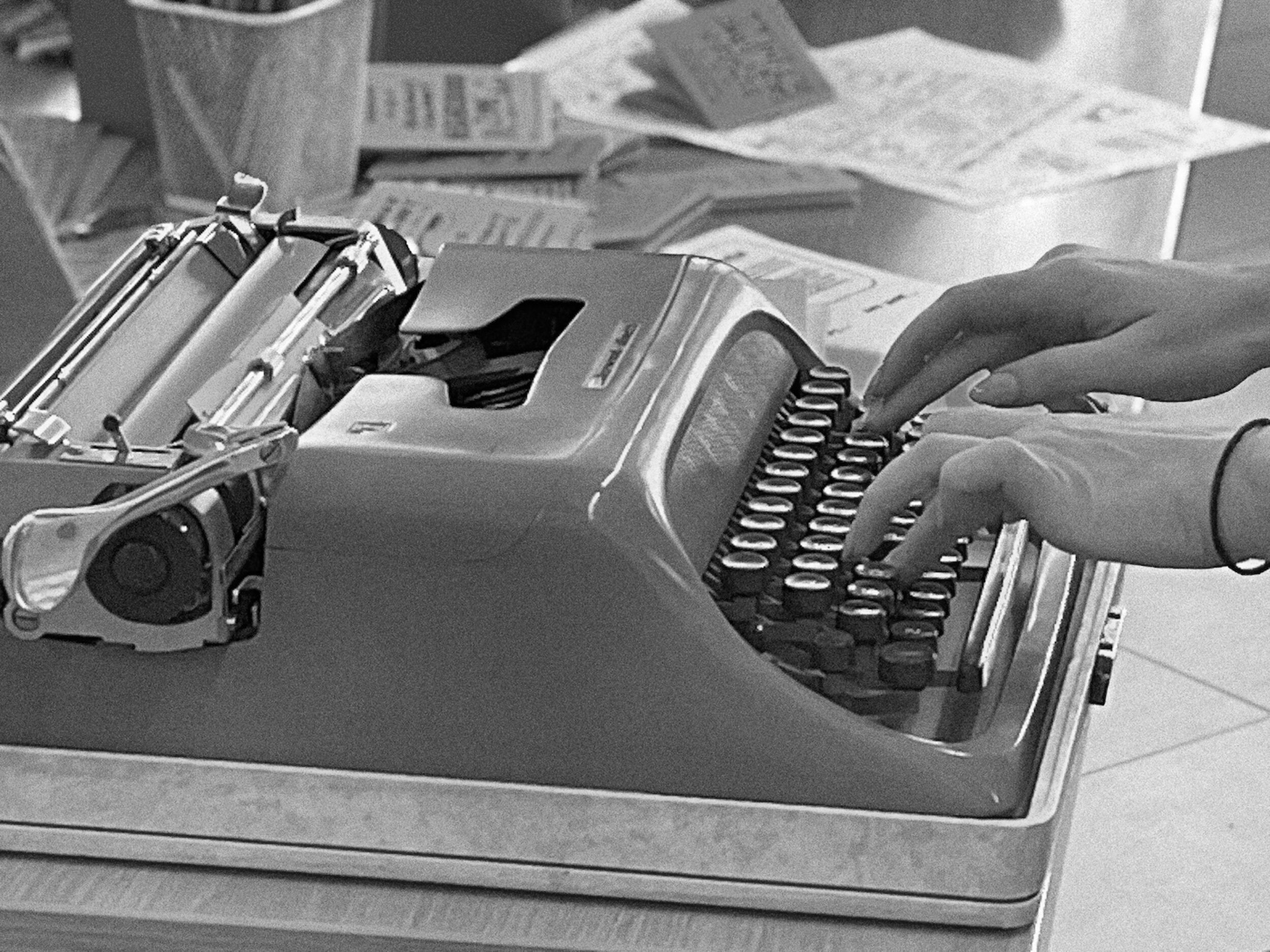
Photo: Sam Hester
How curiosity opens our righteous minds
An alternative to polarization.
On weekends, The Sprawl sends out an email newsletter called Saturday Morning Sprawl. Subscribe here so you don't miss a dispatch! Here is this week's edition.
This month marks the sixth anniversary of The Sprawl's podcast/radio show, Sprawlcast.
The idea for the show was suggested to me by Mike Tod, who was CJSW's news director at the time. The Sprawl was a pop-up operation that was just a few months old, and Mike suggested that the radio format would be ideal for The Sprawl's deep-dive local journalism. "Let it percolate," he said. This is a Mike-ism—he works with me to this day and has said it to me many times since. "Let it percolate."
This could be The Sprawl's slogan: Let it percolate.
For that first show, I didn't know what I was doing, and there was a chaotic joy (and much pain!) in that. Copious amounts of tape were recorded. Editing was inefficient. Scripts went unwritten and my narration was winged on the fly. Post-its proliferated. I set up this board just to figure out what the heck we were doing and how to structure the damn thing.
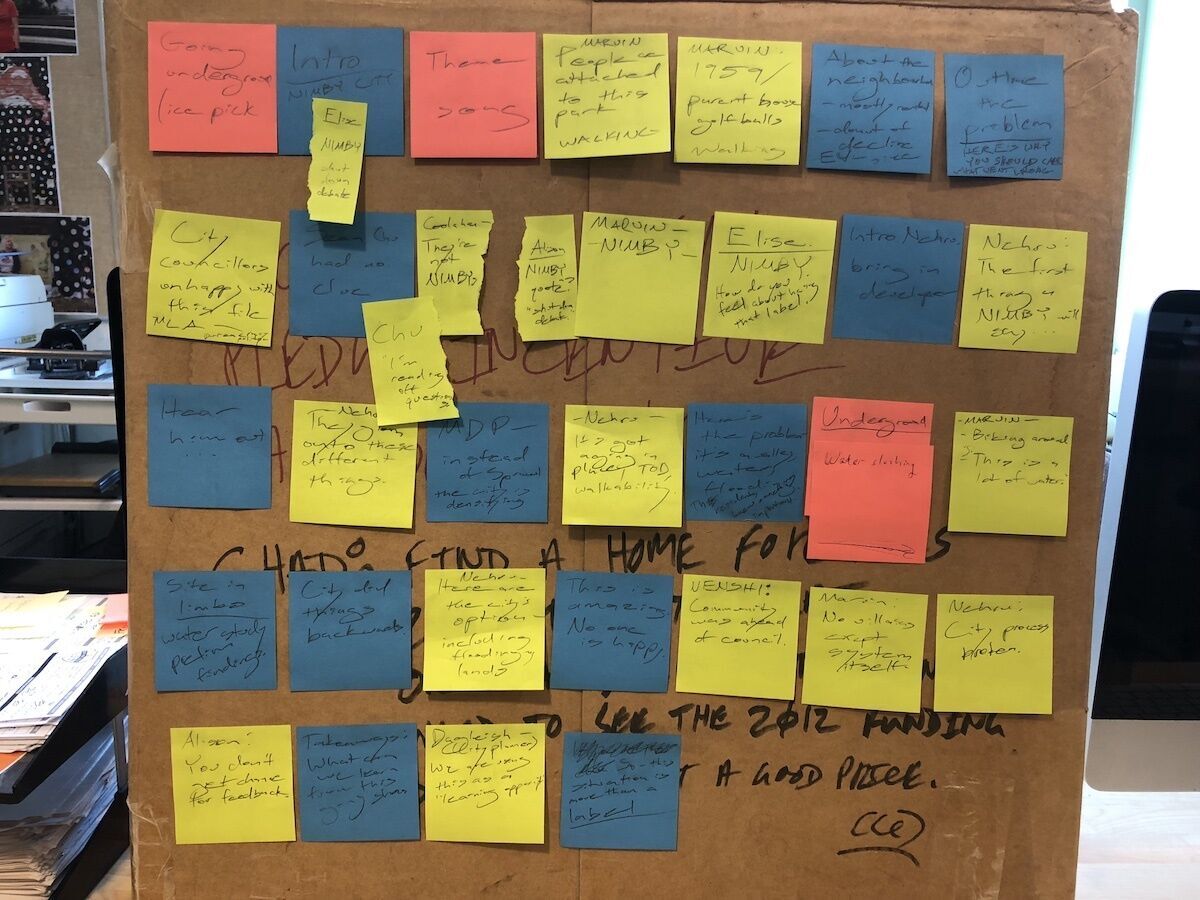
That first Sprawlcast episode, titled "NIMBY City," is one of my all-time favourites. I like it because it embodies the kind of curiosity-driven journalism I aspire to do with The Sprawl. It asked questions rather than casting judgments. And it dug into a situation that is very timely: inner-city densification and NIMBYism (Not In My Back Yard).
The insights in that episode, about what the NIMBY label reveals and obscures, are as timely as ever, as the debate about citywide blanket rezoning in Calgary heats up in the run-up to the public hearing on April 22. For this reason we are republishing it today, complete with a full transcript for those who would rather read than listen.
When I was sitting at council the other week, listening to council members debate whether or not to put the blanket rezoning issue to a plebiscite (this was voted down 8-6), there was a lot of talk about the importance of council members remaining "amenable to persuasion" at the upcoming public hearing, which is their legal obligation as elected officials.
It made me wonder: Who among us, on council or off, is actually amenable to persuasion?
On the housing issue, as with so many others, it seems like polarization dominates the discourse. Each side picks data that favours their position and downplays or ignores what doesn't. For those paying attention to blanket rezoning, I get the sense that most minds are firmly made up, although I would be very interested in any public opinion data that confirms or disproves this.
Who among us, on council or off, is actually amenable to persuasion?
Recently I've been re-reading Jonathan Haidt's landmark 2012 book on moral psychology, The Righteous Mind. It's essential reading for anyone who is interested in understanding the workings of the human mind—and the differences between how we think our minds work and how they actually work.
Haidt's overarching point is that we are not as rational as we think we are. When it comes to moral reasoning, Haidt writes, "intuitions come first, strategic reasoning second." Put another way: Our gut feelings hold sway, and then we line up the facts to justify those gut intuitions.
As humans, we tend to accept what fits our worldview or narrative, and toss the rest. And yes, this includes progressives who see themselves as evidence-driven, trust-the-science type of people.
It is fascinating to see how this is playing out in the blanket rezoning discussion. The debate can quickly fall into stark moral terms: greedy developers and their YIMBY enablers vs. selfish NIMBYists.
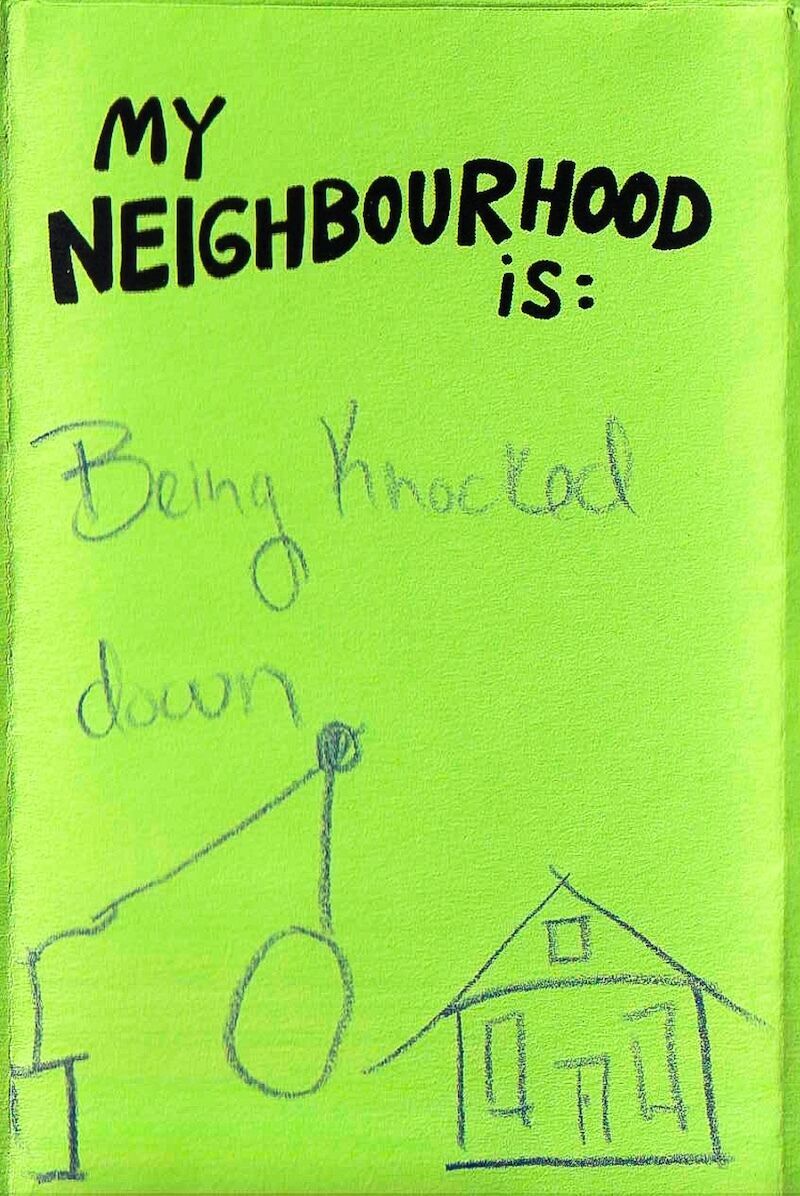
There is a degree of truth in these characterizations. But I wonder what we miss with that kind of stark, binary moral framing. Over the past week we've done a couple zine workshops at the Central Library—more on that in a bit—and it's been interesting to see what has emerged from this. (I've included a couple examples from zines people made.)
People observe, rightly, that there is a seemingly insatiable urge in Calgary to knock down what exists, whether it's a hockey arena or postwar bungalow (and they note that the new development is often more unaffordable!). This is not a city that treasures its built heritage. This shows up all over the place. We are obsessed with the shiny and new, and disdainful of the old.
There is also a view that what is there presently is somehow the God-given default, that single-family neighbourhoods are a divine right that must not be changed, ever. This strikes me as similarly disdainful of Calgary's historical context—and our future, given the need for housing.
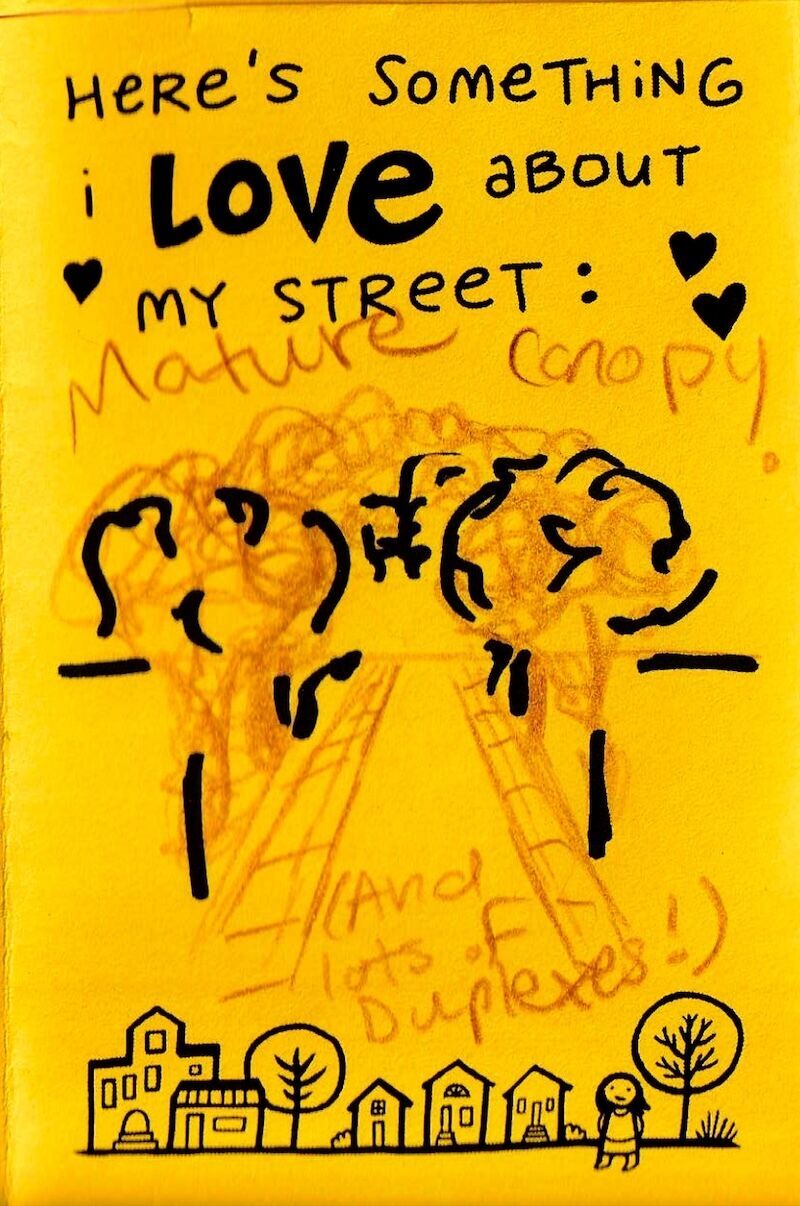
Here's what interests me about Haidt's work. He suggests that on polarizing moral issues, each side has insights to contribute. But often we end up talking past each other, or even further entrenching each other, with no one moving an inch.
"Morality binds and blinds," Haidt writes. "It binds us into ideological teams that fight each other as though the fate of the world depended on our side winning each battle. It blinds us to the fact that each team is composed of good people who have something important to say."
But even though our intuitions hold sway, we can sometimes listen to reason. It takes some intentionality though.
"The main way that we change our minds on moral issues is by interacting with other people," Haidt writes. "We are terrible at seeking evidence that challenges our beliefs, but other people do us this favour, just as we are quite good at finding errors in other people's beliefs."
The nature of these these discussions matters, as self-righteousness and demonization of our opponents can shut down any movement. "When discussions are hostile, the odds of change are slight," Haidt writes.
The main way that we change our minds on moral issues is by interacting with other people.
But where there is curiosity, more movement is possible. We can even try to find the truth in each other's arguments.
I've got another Sprawlcast in the works that digs deeper into an aspect of the rezoning issue. In the meantime I wonder: What if we viewed the people we disagree with less as misguided reprobates—which is so easy to do—and more as people who might have something to teach us?
The Sprawl's pop-ups at the Central Library
Speaking of interacting with other people... This was an exciting week at The Sprawl, as Sam Hester and I went on the road to the Central Library to do a couple pop-up zine workshops. It was a blast!
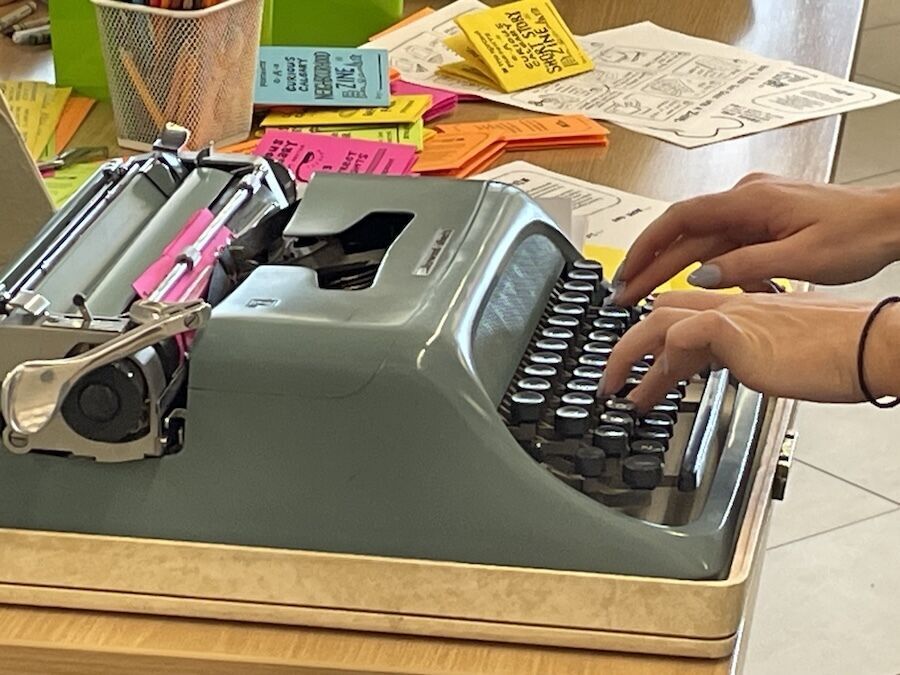


On Wednesday, we had a Grade 2/3 class come through as part of Library School. We got them talking and thinking about what they want to see in their neighbourhoods. Sam helped them make zines and I had each student make a print on the printing press.
We weren't sure how it was going to go, but the kids loved it!
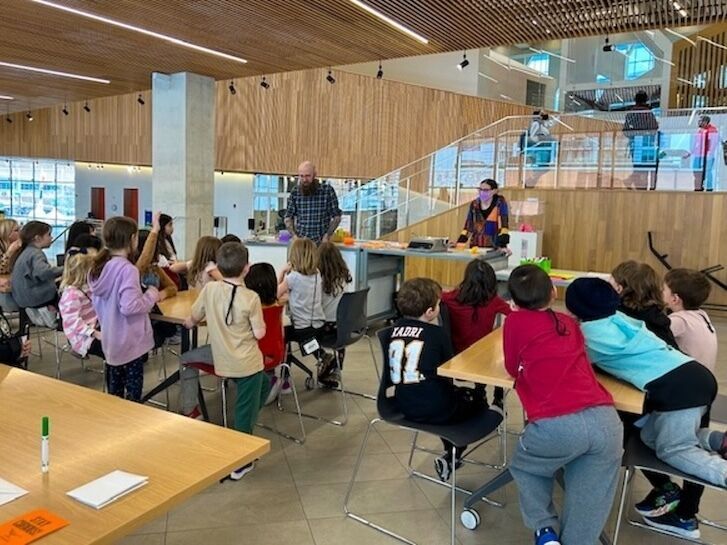
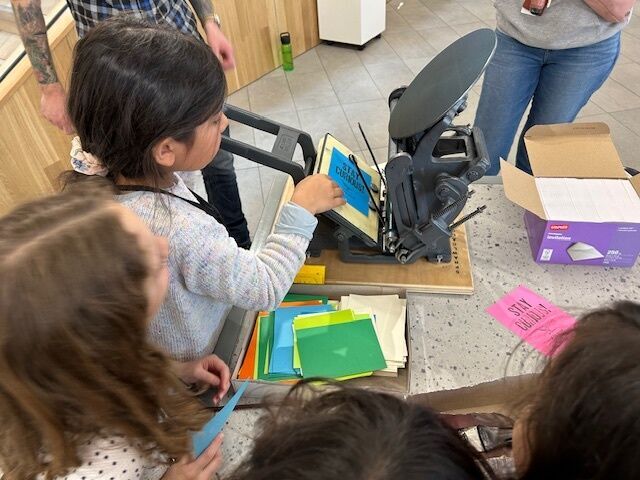
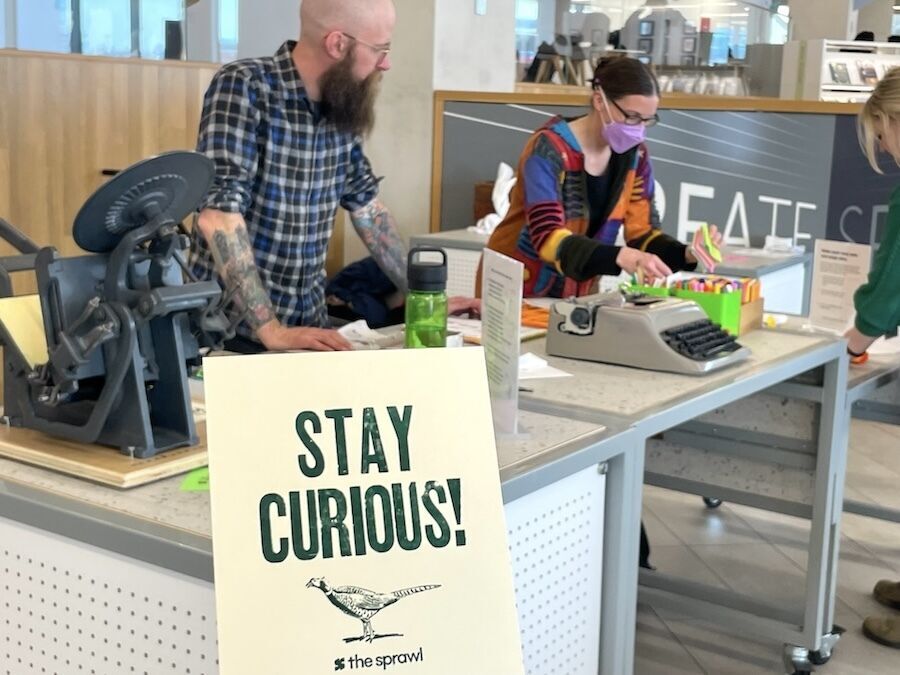
But the absolute best thing that came out of these workshops is this:
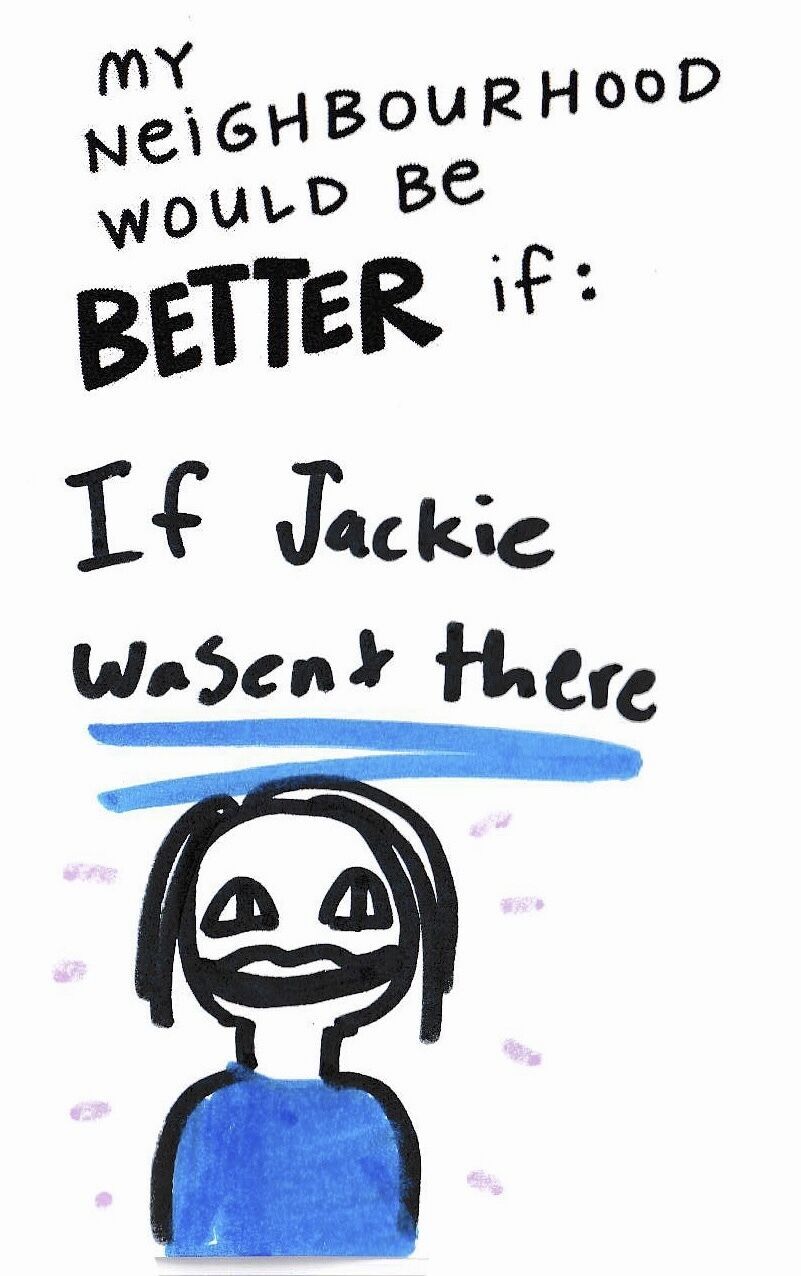
Oh Jackie. We all have our Jackies.
Now that we've piloted our pop-up press at the library, we're ready to take our road show to coffeeshops, markets, classrooms, breweries—you name it.
A number of you reached out to say you wanted to make it out this past week but couldn't. Here are the details for the next one:
The Sprawl: Pop-Up Press
Greenview Edition
Congress Coffee (#1A 215 36 Ave NE)
April 10
7 - 9 p.m.
As always, if you value our work, please support it! It's easy to take something like The Sprawl for granted, but we really do need community support to keep at this. We put a lot of time, effort and care into our work—and I hope that comes through.
From day one, The Sprawl has made its journalism available to all Calgarians. No paywalls! But the only way this model works is if people step up to support us. Most of our members pitch in just $5 or $10 a month, and that's what makes it possible for us to continue serving Calgarians.
Thanks for your support!
Jeremy Klaszus is editor-in-chief of The Sprawl.
Support independent Calgary journalism!
Sign Me Up!The Sprawl connects Calgarians with their city through in-depth, curiosity-driven journalism. But we can't do it alone. If you value our work, support The Sprawl so we can keep digging into municipal issues in Calgary!




